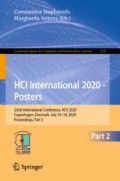Abstract
Computational Thinking (CT) has seen a tremendous rise within the educational sector. Being adopted into the curriculums for secondary and primary schools across the globe. This paper covers early finds from an initial literature review, aimed at a larger comparative study between Europe and Asia concerning the pedagogy of CT. A survey mapping the current approach to Information and Communication Technology (ICT) in the East Asian region. The primary focus is on the countries’ current and future implementation of CT in primary and secondary education. Interestingly, a similar rate of adoption can be found also in Europa [1]. Moreover, this paper analyzes the complexities inherent in attempting a characterization and comparison of the CT approach of different countries, starting from the lack of a universally accepted definition for CT, including an uneven distribution of articles on the topic. Our main contribution is to propose an extended set of categories to support a critical comparison.
Access this chapter
Tax calculation will be finalised at checkout
Purchases are for personal use only
References
Bocconi, S., Chioccariello, A., Dettori, G., Ferrari, A., Engelhardt, K.: Developing computational thinking in compulsory education-Implications for policy and practice. Joint Research Centre (Seville site) (2016)
Seymour, P.: Mindstorms; Children, Computers and Powerful Ideas, 1st edn. Basic Book, New York (1980)
Wing, J.M.: Computational thinking. Commun. ACM 49(3), 33–35 (2006)
Mohaghegh, D.M., McCauley, M.: Computational thinking: the skill set of the 21st century. Int. J. Comput. Sci. Inf. Technol. 7(3), 1524–1530 (2016)
Hsu, T.-C.: A study of the readiness of implementing computational thinking in compulsory education in Taiwan. In: Kong, S.-C., Abelson, H. (eds.) Computational Thinking Education, pp. 295–314. Springer, Singapore (2019). https://doi.org/10.1007/978-981-13-6528-7_17
Kristensen, K.: Towards computational thinking in Scandinavia. In: 27th International Conference on Computers in Education, ICCE 2019, pp. 47–49. Asia-Pacific Society for Computers in Education (2019)
Drotner, K., Iversen, S.M.: Digitale metoder: At skabe, analysere og dele data. Samfundslitteratur (2017)
Education Bureau. https://www.edb.gov.hk/en/index.html. Accessed 20 Mar 2020
Hsu, Y.-C., Irie, N.R., Ching, Y.-H.: Computational thinking educational policy initiatives (CTEPI) across the globe. TechTrends 63(3), 260–270 (2019). https://doi.org/10.1007/s11528-019-00384-4
Lee, M.: Computational thinking: efforts in Korea. In: Rich, P.J., Hodges, C.B. (eds.) Emerging Research, Practice, and Policy on Computational Thinking. ECTII, pp. 363–366. Springer, Cham (2017). https://doi.org/10.1007/978-3-319-52691-1_22
Wu, L., et al.: Teacher’s perceptions and readiness to teach coding skills: a comparative study between Finland, Mainland China, Singapore, Taiwan, and South Korea. Asia-Pac. Educ. Res. 29(1), 21–34 (2019). https://doi.org/10.1007/s40299-019-00485-x
Kanemune, S., Shirai, S., Tani, S.: Informatics and programming education at primary and secondary schools in Japan. Olymp. Inform. 11(2017), 143–150 (2017)
Wong, K., Negreiros, J., Neves, A.: Computer literacy teaching using peer-tutoring: the Macao, China, experience. Proc. MAC-ETL 2016, 10–17 (2016)
Gaspard-Richards, D.: Flipped classroom, mlearning and the integration of ICT in teaching and learning. Int. J. Educ. Dev. Using Inf. Commun. Technol. 15(2), 2–4 (2019)
Lee, Y.B.: Analysis on computer education in elementary schools in North Korea and South Korea with further prospect. J. Korea Converg. Soc. 5(4), 49–60 (2014)
Author information
Authors and Affiliations
Corresponding author
Editor information
Editors and Affiliations
Rights and permissions
Copyright information
© 2020 Springer Nature Switzerland AG
About this paper
Cite this paper
Kristensen, K. (2020). Implementation of Computational Thinking in School Curriculums Across Asia. In: Stephanidis, C., Antona, M. (eds) HCI International 2020 - Posters. HCII 2020. Communications in Computer and Information Science, vol 1225. Springer, Cham. https://doi.org/10.1007/978-3-030-50729-9_38
Download citation
DOI: https://doi.org/10.1007/978-3-030-50729-9_38
Published:
Publisher Name: Springer, Cham
Print ISBN: 978-3-030-50728-2
Online ISBN: 978-3-030-50729-9
eBook Packages: Computer ScienceComputer Science (R0)

